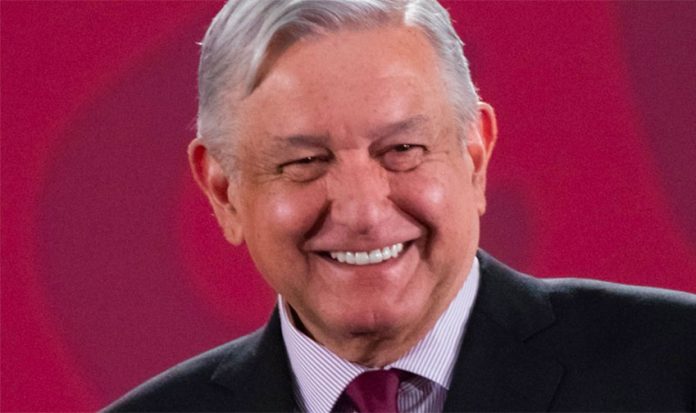President López Obrador is preparing to launch an “alternative index” that will measure people’s happiness and well-being in addition to economic growth.
“I’m working now on an index to measure well-being, an alternative index to the so-called gross domestic product. I’m going to present a new parameter that will measure growth but also well-being and degrees of social inequality,” he told reporters at his regular news conference on Thursday.
“Another ingredient in this new parameter, this new paradigm, [will be] the happiness of the people. The technocrats won’t like it, … but if they don’t like it, it’s probably good for us,” López Obrador said.
“There are countries where the level of happiness is measured and that’s part of well-being. I’m making the formula, we’re going to apply it in Mexico. It’s a different measurement system and we’ll probably also contribute to having other parameters in the world in order to know if there really is well-being. … It’s not just about accumulating wealth and even less so if wealth accumulates in just a few hands,” he said.
“The distribution of income is what’s important, the distribution of wealth – well-being, in other words.”
In developing his new index, López Obrador said that he will consult with the United Nations Economic Commission for Latin America and the Caribbean and seek contributions from econometricians, mathematicians, economists, sociologists, anthropologists, psychologists and other experts.
“… It’s something new, an interesting contribution; thinking about the return to the ‘new normal’ [from the coronavirus pandemic], we can’t continue living in the same way,” he said.
The president has long railed against using GDP growth as a sole measure to assess the performance of the economy and in turn people’s economic and social well-being, although he embraced it as a target when he took office
Despite widespread poverty, violence and a range of other social problems that trigger frequent protests, López Obrador has claimed that the people are “happy, happy, happy” with their lot in life.
However, with the coronavirus-induced economic crisis predicted to push as many as an additional 10.7 million people into poverty, happiness soon might not be as widespread as he thinks.
More than 750,000 formal sector workers have already lost their jobs due to the pandemic and an untold number of those who toil in the informal economy have seen their incomes plummet if not dry up completely.
Analysts and financial institutions are forecasting a deep recession for the Mexican economy in 2020, providing López Obrador with added incentive to attempt to divert focus from GDP figures that will almost certainly make for reading that is more “sad, sad, sad” than “happy, happy, happy.”
Source: Reforma (sp)
